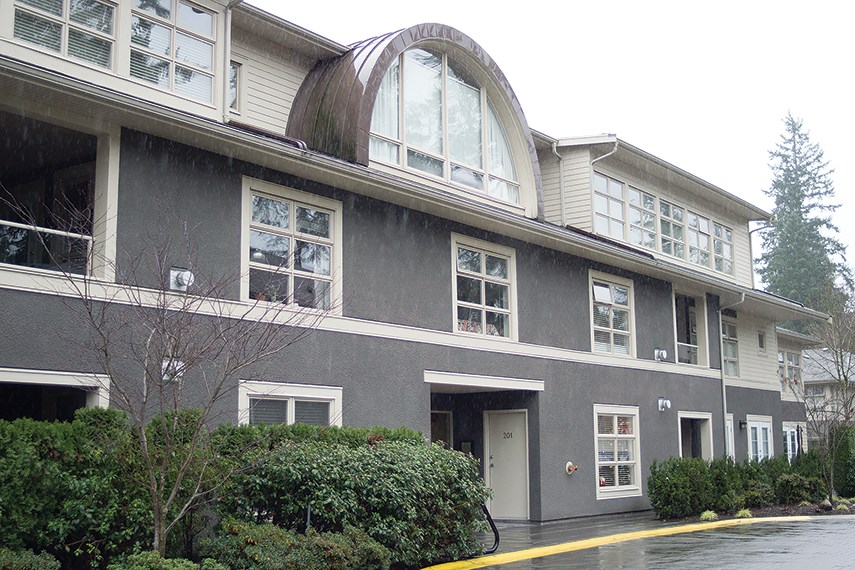A North Vancouver woman has filed a human rights complaint against her Edgemont strata council, saying the council discriminated against her by not allowing her to install a central air conditioner in her townhouse to help with her arthritis symptoms.
Marianne Macario told the human rights tribunal that she suffers from rheumatoid arthritis, which is aggravated by warm temperatures, which cause her joints to swell.
Macario requested permission to install an air conditioning system in her unit in June 2016, but the strata council refused, according documents filed with the tribunal. In doing so, Macario said the strata discriminated against her on the basis of a disability.
According to tribunal documents, Macario lives in a two-floor duplex-style apartment in a 44-unit building in Edgemont. “She is a teacher, and so during the summers, when temperatures are hottest, she is at home,” according to the documents. During the summer of 2015, temperatures soared inside her home to between 28 and 32 degrees Celsius, causing her a “nightmare of pain and depression,” according to documents filed with the tribunal.
Macario put a portable air conditioning unit in her bedroom window, but soon got a letter from the president of the strata, asking her to remove the hose from the unit so it couldn’t be seen from the street. Potential noise and esthetic concerns were both factors in the request to remove the unit.
After that, Macario researched permanent air conditioning systems that might work in her apartment. She settled on a $20,000 unit, which she believed to be quiet and unobtrusive and in 2016 asked the strata for permission to install it.
Meanwhile, two strata council members attended a demonstration for a similar unit, and voiced a number of concerns about it. Among those: that the system would be noisy, would emit a significant amount of hot air, was ugly, could create vibration and could cause moisture build up in common areas of the building.
At the strata’s annual general meeting, held after that, Macario presented a doctor’s note about her arthritis. But the resolution was defeated.
In rejecting Macario’s request, the strata encouraged her to pursue other methods of cooling her apartment, including ceiling fans and blinds.
But Macario told the human rights tribunal she had either tried the other methods and found they didn’t work, or they were impractical.
For instance, she wrote that she previously had a ceiling fan over her bed “but it simply blew warm air on her and did not decrease the room temperature.”
She added she would need five portable units to cool her home which would block her view, take up a lot of space in small rooms and not be energy efficient.
Macario filed a complaint with the human rights tribunal on July 29, 2016.
The strata council argued that allowing Macario to install a permanent system would create undue hardship to the strata, including creating noise levels higher than those permitted by municipal bylaws, risking damaging the building envelope and negatively impacting the building’s appearance.
The strata asked the tribunal for an early dismissal of Macario’s complaint, arguing her objection to using portable units was based on “convenience rather than their effectiveness.”
But tribunal member Devyn Cousineau recently rejected that, stating the case should proceed to a full hearing on the evidence.



